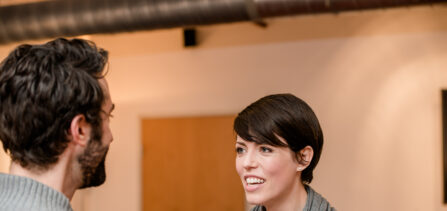
What is an Activist – Then and Now
Today is Martin Luther King Jr day and every year I do take time to reflect on where we are and where we aren’t.
Some years I am full of rage and despair and others, hope and encouragement.
Monday 16th January 2023 – What is an Activist?
Today is Martin Luther King Jr day and every year I do take time to reflect on where we are and where we aren’t.
Some years I am full of rage and despair and others, hope and encouragement.
And more likely than not, it’s a combination of the two. Yes, it’s hopeful to see that some things, snail-like are changing, and enraging that so many of the same issues are just as intractable and polarising as they have always been. I think the biggest difference between then and now, personally, is that I wasn’t as cynical then as I am now.
Now that’s interesting because I was raised to be rather cynical, questioning, and suspicious. Yet, when I was working during the Civil Rights movement in the 1960s, there was so much belief and passion that we could make a real and significant difference. Our efforts helped dim my cynicism.
What is an Activist?
It was a continual roller-coaster of emotional highs and despairing lows. Rosa Parks, the bus boycotts, and The Freedom Riders inexorably led to Martin Luther King, Jr’s “I Have a Dream” speech.
He gave the speech during the March on Washington in the summer of 1963 and a thousand more activist ships were launched. I wanted to be part of that dream because battling racism and inequality were woven into my personal values, as they still are.
At the start of 1964 when I was an active member of SNCC (the Student Non-Violent Coordinating Committee). Fanny Lou Hamer and John Lewis (who also spoke so brilliantly at that March on Washington the year before) visited us (the NYC branch).
They inspired and galvanised us. What extraordinary people they were. This was going to be a year of change, of protest, of fulfilling Dr. King’s dream.
I Have a Dream
We worked harder than ever. One of our main roles was to fundraise and support the work SNCC was doing in the South. I have one abiding image which was the result of canvassing high-rise buildings in NY asking for donations of canned food and funds to send to Mississippi.
SNCC had a very large garage I think in Brooklyn and it was filled to the very high roof with a mountain of canned goods that we then packed up in hundreds and hundreds of brown boxes to be driven down South.
I can’t remember how much money we raised but it was also a very goodly amount. We were so proud of what we had achieved on a micro level.
Bloody Sunday
Then there was the macro. After a couple of years of violence in Selma, Alabama culminating in what was known as Bloody Sunday, there was a massive outcry. And we started a movement to get the Federal Government to protect Dr. King, John Lewis, and others crossing the Edmund Pettus Bridge on the March from Selma to Montgomery, Alabama.
SNCC organised a sit-in at the White House and I and hundreds of others were part of that non-violent civil disobedience. Though determined to make a difference, I carried more grief with me because of the assassination of Malcolm X – one of my heroes – a few weeks before.
Civil Rights Act
Troops were sent to Selma – another high. The Civil Rights Act was passed and then the Voting Rights Act. Progress.
Freedom Summer – again, full of hope that the hundreds of activists pouring into Mississippi to help with voter registration would make a difference. And yet the deaths continued.
Fast forward a few months and news of the murder of three civil rights workers (one of whom was a friend) and we were plunged into despair. Into grief, rage, and fear. Yet even that didn’t dim my sense of hope. I kept demonstrating, fund-raising, and supporting.
Three years went by, three years of marching, leafleting, campaigning, of not letting the hatred and violence stop me. Then came the Spring of 1967 an amazing confluence of circumstances.
I was given the opportunity to work with Dr. King on a campaign in Louisville, Kentucky. This was to change their closed housing policy that was keeping neighbourhoods segregated as was still the case in most Southern cities and towns.
Mohammad Ali
Having been escorted out of Houston by members of the police department for supporting the then Cassius Clay (soon to be Mohammad Ali) as he refused induction to the US Army, I was ready to find a project that spoke to my values and aspirations and that’s when I read about Louisville.
This was the kind of activism I was good at. Organising people, helping design posters and placards, phoning, encouraging, and engaging.
And all the while Dr. King had a steady hand on proceedings as he planned our peaceful march to the city hall where the Council was meeting.
After a week of organising we went with as many of us as could fit into the Council chamber and sat shoulder to shoulder hoping Dr. King would be allowed to speak.
Not a chance. The meeting was opened and immediately adjourned and, me being me I would have happily staged a sit-in right then and there. Dr. King had us peacefully and silently leave the building.
The housing policy did eventually get changed. And of course, the world changed once more when a little under a year later Martin Luther King was assassinated.
A voice that was silenced and yet lives on. His birth is celebrated because he accomplished so much, inspired and continues to inspire generations of people, and is still a galvanising force.
Still an Activist
And I’m still an activist, and I wish I didn’t have to be. But vicious racism still exists, people are still being murdered daily because of the colour of their skin, barriers are erected, and hatred spreads like a toxic disease. And once more I have gone micro.
Being part of Bury St Edmunds for Black Lives gives me and my colleagues an exceptional chance to touch young people’s lives. It gives them hope and empowers them to have a voice.
Our anti-racism work in schools demonstrates that a light touch, an open heart, and an empathetic ear coupled with some practical action can and will make a difference.
The collective desire to genuinely create change is Dr. King’s legacy writ large.
Written by Jo Ellen Grzyb




